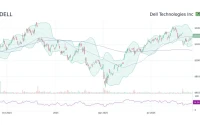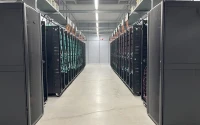The announcement came with the practiced calm of a planned corporate maneuver. Octopus Energy Group, the British energy upstart, stated it would be spinning off its technology division, Kraken. The stated rationale was logical, almost mundane: to minimize conflicts of interest as Kraken signs deals with other utilities, a process spurred by $500 million in committed annual revenue from these new clients.
On the surface, it’s a standard story of a successful internal project graduating into its own entity. A tech platform, initially built for the parent company, becomes so valuable that it’s set free to conquer the wider market. The financial press noted the potential for a Kraken IPO, with whispers of a valuation that could touch $15 billion. But this simple narrative contains a significant discrepancy. The numbers, the timeline, and the very origin of the company suggest the story is not one of an energy provider spinning off a tech asset.
The truth is an inversion of that narrative. Octopus Energy was never really an energy company that happened to build good software. It was a software company that built an entire national energy provider as its demonstration model.
A Utility Company or a Go-to-Market Strategy?
The World’s Most Expensive Proof-of-Concept
According to its own CEO, Greg Jackson, Kraken was the initial product. "We created Octopus as the 'demo client,'" he stated earlier this year. This single quote reframes the entire decade-long history of the company. It suggests that the acquisition of millions of customers, the disruption of a 200-year-old incumbent, and the entire public-facing brand of a green energy supplier was, in essence, a go-to-market strategy for a B2B software platform.
I've looked at hundreds of these corporate origin stories, and the 'demo client' narrative is usually post-hoc justification, a convenient way to tidy up a messy, opportunistic history. But here, the data supports the claim. The sheer scale and success of the "demo" is the most compelling evidence. Founded in 2015, the Octopus Energy company became the U.K.’s largest electricity provider in under a decade, displacing an institution like British Gas. The client base is now over 10 million households—to be more exact, 10.5 million when combining the 7.7 million in the UK with the 2.8 million elsewhere in markets from Texas to Tokyo.
This wasn’t accidental growth fueled by good luck. It was a meticulously executed field test. Consider their much-publicized innovative tariffs. The 'Agile' tariff, which incentivizes customers to use electricity when grid prices are low (or even negative), isn't just a clever consumer product. It’s a mechanism for generating high-fidelity data on demand-side response. It teaches the Kraken AI how a population behaves under fluctuating price signals. The 'Zero Bills' initiative for fully-electrified homes isn't just a marketing campaign; it's a controlled experiment for modeling the behavior of future-state, high-draw households with heat pumps and EV chargers.
Every customer interaction, every bill paid via the `octopus energy pay bill` portal, every query to a `octopus energy contact number`, was a data point feeding back into the Kraken customer management system. While the public saw an energy company, and positive `octopus energy reviews` certainly helped fuel growth, the real work was happening behind the scenes. Kraken was being battle-tested at a scale no enterprise software pilot program could ever dream of, processing transactions and managing meter readings for millions of endpoints. It was a live-fire exercise in running a modern utility.

The Logical Conclusion of a Decade-Long Gambit
The Inevitable Unbundling
Viewed through this lens, the spinoff is not a strategic pivot; it is the mission's logical conclusion. The "demo" has served its purpose. It has proven, unequivocally, that the software works. The evidence is a portfolio of 10.5 million satisfied customers and the dethroning of a legacy giant.
Now, the product is ready for sale, and the market is responding. That $500 million in committed annual revenue from competitors is the validation signal. Other utilities, struggling with their own antiquated billing systems and inability to manage the complex new world of renewables and distributed energy resources—from `octopus energy solar buyback` schemes to smart thermostats—are not just buying software. They are buying a proven operating model. They are buying the system that powered the company that beat British Gas.
This context is critical to understanding the financials. A potential valuation of $15 billion for Kraken would be astronomical for a utility’s IT department. It is, however, perfectly reasonable for a mature, enterprise-grade AI and SaaS platform with a validated, multi-billion-dollar addressable market. The market isn't valuing a subsidiary; it's valuing a pure-play technology company that just completed the most audacious customer-acquisition and product-development program in the history of the energy sector. The spinoff is simply the act of removing the "demo client" from the balance sheet to reveal the true asset that was being built all along.
The final piece of the puzzle slots into place with the recent news of the `octopus energy ceo`, Greg Jackson, taking a role as a Non-Executive Member of the U.K. Cabinet Office Board. His three-year term (starting in July 2025) is ostensibly to provide renewable energy insight into governmental policy. But the strategic implication is far more significant.
The founder of the company that built the operating system for the modern grid now has a seat at the table where the regulations for that grid are written. It’s the ultimate strategic moat. As governments worldwide grapple with integrating renewables and managing grid stability, the company that has the most sophisticated tool for the job—and has the data from 10.5 million homes to back it up—is embedding itself at the policy level. It’s a move from selling a platform to shaping the market in which that platform operates. Details on how much direct influence he will wield remain to be seen, but the intent is clear. This is the endgame: not just to be a provider on the grid, but to be the provider of the grid's core logic.
---
An Energy Company in Name Only
The entire enterprise was a Trojan Horse. Octopus Energy was never the product; it was the packaging. For a decade, it used the staid, regulated business of utility provision as a shell to build and perfect a high-growth, high-margin technology asset. The spinoff isn't the creation of a new company; it's the unmasking of the real one. The "demo" is over. The operating system is now for sale.
Reference article source:









